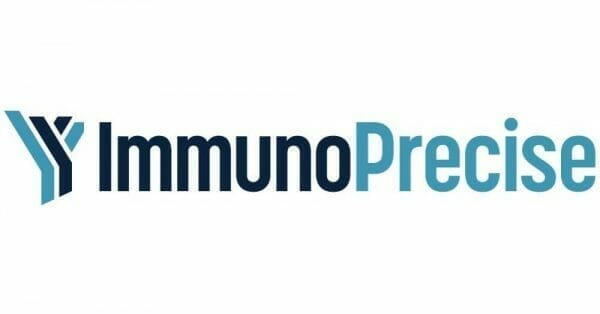You know what grinds my gears? The fact that investors will happily speculate on Tesla (TSLA.NYSE) stock because they think they understand the automobile market, but won’t attempt to do the due diligence for biotechs because it’s “too hard”.
Do the due diligence, and find yourself a value bet.
Even when news is shared in an effective manner, it doesn’t necessarily mean that the investor community will adequately respond.
Case in point: Immunoprecise Antibodies Inc (IPA.V). The firm announced two MAJOR updates, both of which the market overlooked. Lucky for us, we sized up on our long position.
A month ago, I had the opportunity to get on a call with Dr. Jennifer Bath, the President and CEO, to ask about the company and inquire about their future plans. The conversation validated my research intuition, that the firm is poised for long term success in addition to its most recent COVID-19 related news.
It’s been two months since I first wrote about them, and despite their value proposition, they were subjected to the small-cap business cycle of a retail-pump-and-dump.
On June 29, Immunoprecise announced news confirming discovery of fully human, potent, neutralizing antibodies targeting SARS-COV 2. How did the market respond?
- Early market open: stock trading gets halted
- Mid market hours: trading continues
- Hours near market close: the stock falls, and gains are eroded
Surprise surprise.
But a stock price is not the same thing as a company. A fall of 10% in the stock price doesn’t mean the firm has suddenly become 10% worse at what it does. The opposite holds true as well, a rise in the stock price of 20% in a day doesn’t mean the company has suddenly become 20% better at what it does.
The stock is merely an instrument to invest in the company. But it is not the company. The incentives of day traders and speculators looking for a quick buck are a lot different from those of an investor. How much “returns” you end up making is a direct result of when you decide to liquidate your position and exit the game.
For us, that’s not going to happen anytime soon. Why? Because we did the due diligence, researched the science behind the company’s operation, and are assured that its potential to capture the market over the long term is solid. But before we dive into the news, let’s break down the science to contextualize the firm’s recent news:
The Science
A pathogen is a disease causing organism. An antigens is a molecule or a molecular structure outside the pathogen. But evolution is cool and the human body wants to be prepared in the time of a potential attack. So it has antibodies – essentially proteins – that bind to these specific antigens to trigger an immune system response. When an antibody spots one of these bad boys, it sticks to the antigen to neutralize the threat.
More specifically, epitopes are the regions of the antigen that are recognized by antibodies. So when antibodies scream “mayday mayday” – the immune system triggers a response to fight the foreign invader in the body.
Researchers can design antibodies that specifically target a certain antigen. They can then make many copies of that antibody in the lab. These are known as monoclonal antibodies (mAbs or Moabs).
Here’s how the COVID-19 virus works:
Once the SARS-Cov-2 virus enters your body, it spreads and replicates by inserting its genetic information (its RNA) into your healthy cells. This is achieved by the virus attaching to its target cells and then releasing its RNA into the cell.
Antibodies attach to the virus, prevent it from attaching to your cells and neutralize the threat.
It’s now time to examine their recent events:
1: IPA’s European Collaboration
On June 29, the firm announced a collaborative COVID-19 vaccine project between Immunoprecise Antibodies Europe and Litevax BV, Funded through TRANSVAC2
Similar to several other biotechs, IPA has focused its efforts in recent times on a number of initiatives to combat the COVID-19 virus. Most prominent of which are:
- Development of a SARS-CoV-2 diagnostic kit: the company received a grant from the Natural Sciences and Engineering Research Council of Canada, to be used towards the costs to develop a SARS-CoV-2 diagnostic kit.
- Developing a monoclonal antibody (mAB) therapy for the treatment of patients with COVID-19. Additionally, this treatment can be used as a prophylactically for high risk individuals that might be exposed to the virus.
- Developing a polytope vaccine
This press release provides an update on IPA’s collaboration with two European entities put together to create a vaccine.
So who are these companies, and what do they bring to the table?
LiteVax BV
Who they are:
“LiteVax BV is a privately-held company with limited liability established in 2012. Laboratories and offices are located at Pivot Park in Oss, The Netherlands. The founders are experts in research and development of synthetic carbohydrate and polymer based adjuvants and in vaccines against infectious diseases. They have a passion for improving global health by promoting host defense mechanisms with simple molecules and for turning scientific ideas into viable products.”
What they contribute:
In one word – Adjuvants.
According to the CDC website “An adjuvant is an ingredient used in some vaccines that helps create a stronger immune response in people receiving the vaccine. In other words, adjuvants help vaccines work better.”
Transvac 2
Who they are:
TRANSVAC is a collaborative infrastructure project funded by the European Commission (EC), initially under the 7th Framework Programme (FP7) and currently under Horizon 2020. The project is a joint effort of leading European groups working in the field of vaccine development, and is coordinated by the European Vaccine Initiative (EVI).
TRANSVAC is designed to accelerate vaccine development by enhancing European vaccine research and training, and increase sustainability of EC vaccine projects by implementing a permanent research infrastructure for early vaccine development.
What they contribute
Funded by the European Commission, Transvac2 is expected to cover the complete cost of this preclinical vaccine study.
Essentially, IPA will provide protein-based vaccine candidates which will be combined with adjuvants from Litevax that will be used in a preclinical study to their efficacy in a swine (pig) animal model.
The Takeaway
What explains the important nature of these partnerships has to do with IPA’s business as a contracted research organization (CRO). From a business perspective, CRO’s grow by finding the right partnerships for the right projects.
In two words: partnerships & execution.
As explained previously, IPA’s global presence makes the company stand out amongst many other CROs. This collaboration is a further testament to that fact. The European flagship of this Victoria based company is doing collaborations with Litevax (based in Netherlands), and it is funded by the European commission.
2. Scientific Breakthrough
On June 29, IPA confirmed the discovery of fully human, potent, neutralizing antibodies targeting SARS-CoV-2.
This promising press release confirms IPA having identified “numerous lead candidate antibodies with highly potent neutralizing activity in vitro (with microorganisms, cells, or biological molecules outside their normal biological context), which are being manufactured for further testing and possible inclusion in company’s PolyTope mAb therapy to combat the COVID-19 pandemic.”
Moreover, the suite of companies they worked with to achieve this breakthrough is as important as the breakthrough itself. Why? Because they worked with Ligand Pharmaceuticals’ (LGND.NASDAQ) – a $1.8 billion pharma co listed on the NASDAQ.
Ligand genetically engineered rats to produce human antibodies. IPA used these antibodies when it deployed its proprietary discovery platform.
“Arriving at this critical point in our preliminary research with many lead, functional therapeutic candidates is indicative of the broad scientific scope of IPA’s anti-COVID-19 programs,” stated Dr. Jennifer Bath, CEO and President of IPA. “An effective cocktail therapy for COVID-19, targeting multiple epitopes on the virus, could prove fundamental in combating this pandemic in an effective and enduring way.”
Pre-clinical studies to begin summer 2020.
The Takeaway
The science
PolyTope; “The Company’s scientific approach has led to a diverse set of lead antibody candidates, and thus far has generated many potently neutralizing antibodies to multiple epitopes, supporting the Company’s aim of generating a therapeutic that retains efficacy, even as SARS-CoV-2 continues to evolve.”
Imagine a cell in your body as a bank, the virus cells as robbers and the antibodies as the police officers guarding the bank. This means no matter what disguise or weapon the robbers use, officers have the capability to combat it all.
Ligand Pharmaceuticals:
More evidence of effectiveness and strength of IPA as a CRO. Ligand’s $1.8 billion USD market cap, as well as close to $830 million USD of assets, ensures IPAs efforts are backed by yet another solid entity.
Final Thoughts
IPA’s ability to initiate multiple efforts to combat COVD-19 are nothing if not impressive.
Their recent developments not only attest to the firm’s moat aroundscientific capabilities, but also add credibility to its operations in international markets.
A market entry in Europe, partnerships with established giants in the US, and a scientific breakthrough to help us all fight COVID-19.
IPA is a prime example of a well-run CRO. Over the past few months they have repeatedly demonstrated the ingenuity and prowess of what the make up of a successful CRO looks like. When scientific acumen is coupled with demonstrated execution of business strategy – long term investments override short term speculation.





